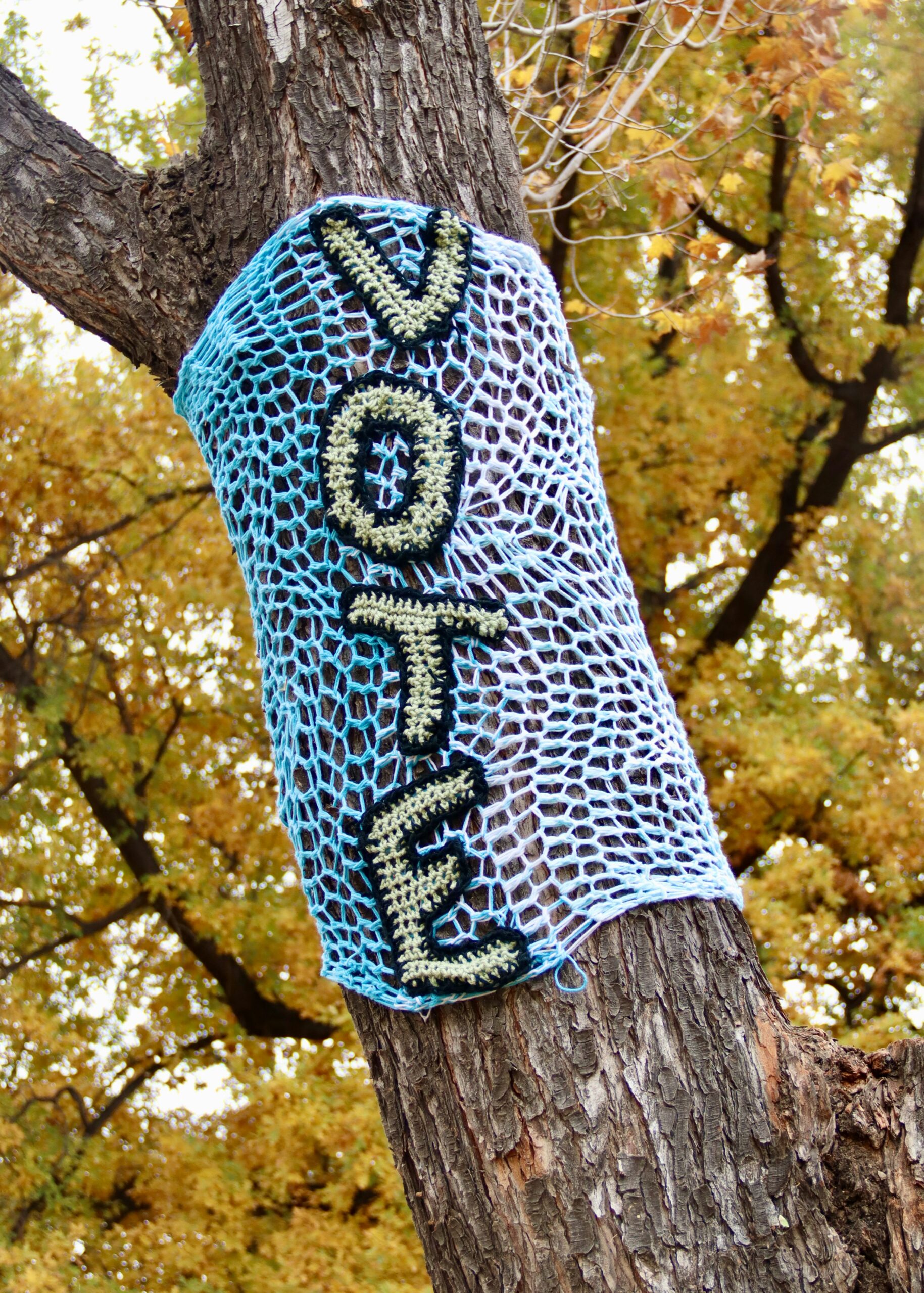We are no longer accepting submissions. View the selected and published essays, here.
About the Essay “Un-Contest”
The War Prevention Initiative (WPI) is seeking submissions for an essay “un-contest” on peaceful elections.
At the War Prevention Initiative, we center our analysis on challenging militarism and the assumption that violence, force, and domination are necessary to solve conflict. With half of the global population living in countries with national elections this year—among them, the U.S. presidential election in November 2024—we are concerned about the potential for violence before, during, and after these elections. In the U.S., severe political polarization means that trust in one another and political institutions is fraying—trust necessary for democracy to function well. Decreasing confidence in the U.S. electoral system in some quarters of the populace means that any election outcome may be contested, just as with the attempted violent challenge to certifying electoral results at the U.S. Capitol on January 6, 2021. Furthermore, recent polls have shown that 20% of the U.S. public (28% of Republicans, 18% of Independents, and 12% of Democrats) thinks that violence is necessary to “get the country back on track.”
People from across the political spectrum fear limits to political expression—another necessary component of a thriving democracy. For example, in the U.S., a New York Times Opinion and Siena College poll found that “only 34 percent of Americans said they believed that all Americans enjoyed freedom of speech completely.” Rates of hate crimes have surged in the U.S., suggesting that threats of violence are most acutely felt by BIPOC, immigrant, LGBTQ+, and other minority communities. Furthermore, the curtailing of political rights and weakening of democratic institutions are trends experienced worldwide, according to International IDEA.
We want to challenge ourselves and potential contributors to ask: How can we ensure that elections are peaceful—that individuals feel safe expressing themselves politically, free from violence and threats of violence?
Why an “Un-Contest”
Why an “un-contest”? This project is not about determining winners and who comes out on top. This is about all of us challenging ourselves to advance our thinking on how to ensure peaceful elections. By offering money to those who we are able to publish and using our Peace Science Digest platform to showcase them, WPI wants to recognize the efforts by going beyond a heartfelt “thank you”.
This “Un-Contest” and How We Address White Supremacy Culture
We are mindful of how award money, even in the format of an ‘un-contest,’ can have subtle and direct characteristics of white supremacy culture (listed in italic font). We try to avoid them in the following manner:
- Perfectionism– we want to approach all submissions with a deep sense of appreciation and let the contributors know; we focus on what is good;
- Sense of urgency– for operational purposes we will have a submission due date; however, we realize that some contributors might be caught in a well-known last-minute struggle to submit (including technical difficulties). We encourage contributors to contact us and let us know if they need more time;
- Worship of the written word– we have purposefully allowed for audio and photography submissions to expand the accepted format away from text only; we will not prioritize perfect writing over thoughtful, creative, or valuable ideas and will instead work with the contributor on edits if an essay is chosen for publication;
- Only one right way– we offer limited guidance on the characteristics of peaceful elections to make sure contributors have enough creative freedom to set their own tone for the submission;
- Paternalism, power hoarding, and objectivity– we are transparent about the selection committee, which consists of two non-WPI members and is intentionally diverse (demographically and professional/personal backgrounds); in doing so, we hope to move away from the idea that we (WPI) are ‘objective’ gatekeepers of what is a good submission;
- Individualism – this project does not have to be about one person “taking home the prize”; we accept individual submissions from up to 5 co-contributors.
Essay Questions and Criteria
We ask that submissions respond to one or more of the following prompts (no need to respond to all of the questions in any given prompt):
- Have you experienced election-related violence (or threat of violence) firsthand? What happened, and how did it influence your sense of safety and desire to vote or be politically active? What about your family members, friends, and community members? What role did security forces play in either contributing to or preventing violence in your experience? How did their actions impact your sense of safety and trust in the electoral process?
- Have you been involved in efforts at the community level to prevent election-related violence, build relationships and trust across the political divide, and/or increase trust in electoral institutions? What have you learned from these efforts that you can share with others? What has “worked”? What remains a challenge?
- From where you stand, what concerns you the most about upcoming elections and your own sense of safety and freedom to exercise your right to vote? What can you do to help address this concern? And what can others from different communities—who wish to help—do? Are there access points or forms of influence they might have that you don’t directly have?
Our intention in holding this essay “un-contest” is to gather a diverse array of perspectives on election-related violence and peaceful elections that will (a) broaden our collective understanding of the election-related concerns of people who are differently positioned in terms of their political affiliations, social identities, and geographical locations, and (b) inspire community-based action to build bridges, strengthen trust in electoral institutions, and prevent election-related violence. With all this in mind, we urge authors to consider writing from their own lived experience and as if they are addressing fellow voters different than themselves who share, at minimum, the desire to participate in elections free from fear for their personal safety and that of their loved ones and fellow community members. We encourage authors of diverse political affiliations, social identities, and geographical locations to contribute.
The selection committee will use the following criteria to decide which essays to publish, namely essays that:
- Are clearly written/expressed.
- Are relevant to the chosen essay prompt(s).
- Are grounded in lived experience or other forms of expertise.
- Adopt a tone that invites curiosity, understanding, and connection.
- Provide a window into a perspective or lived experience not widely represented in the other essays.
- Do not violate any of WPI’s core values: nonviolence, empathy, planetary loyalty (i.e., the aspiration to live in harmony with humanity and the natural world), and moral imagination (i.e., the desire to relate to others—even adversaries—as humans with whom we are connected rather than as one-dimensional threats).
We accept written essays, as well as photo or audio essays or other forms of creative expression (that can be published on a website) in English. One submission per person and up to five co-contributors for one submission.
Photo Essays
- Photo submissions should contain no more than 15 images and should include a title and author(s) name.
- Original photography only.
- Photo captions and descriptions are encouraged.
- Selected submissions are subject to free and fair use.
- Non-selected submissions will not be republished or re-used by the War Prevention Initiative or the Peace Science Digest unless approved following the written permission of the author.
- Excessively vulgar, offensive, sexually explicit, or otherwise sensitive imagery determined at the discretion of the selection committee will not be considered.
Audio Essays
- Audio submissions should not exceed 10 minutes and include a title and author(s) name.
- Audio files accepted: .mp3, .m4a, .ogg, .wav.
- Selected submissions are subject to free and fair use.
- Non-selected submissions will not be republished or re-used by the War Prevention Initiative or the Peace Science Digest unless approved following the written permission of the author.
- Excessively vulgar, offensive, sexually explicit, or otherwise sensitive language determined at the discretion of the selection committee will not be considered.
Written Essays
- Word count is up to 1,000-1,200 words (excluding citations and footnotes) and should include a title and author(s) name.
- Submissions will be screened for plagiarism and may be subject to disqualification if sources are not acknowledged and cited properly.
- Citations in APA style is highly encouraged but not required; if you are not familiar with this citation style, we ask for clear and consistent references that help the readers identify the source.
- Non-selected submissions will not be republished or re-used by the War Prevention Initiative or the Peace Science Digest unless approved following the written permission of the author.
- Excessively vulgar, offensive, sexually explicit, or otherwise sensitive language determined at the discretion of the selection committee will not be considered.
How to Submit
Submission form: https://forms.gle/Sp2zqof3jdxz8yJC6
- Submissions will be via text into a box on the form or via URL into the same box – that way, nobody must be signed in with a Google account to submit (file submissions require a Google account)
- Contributors who have files should make them available via downloadable link or send them to info@warpreventioninitiative.orgwith the subject line: “Submission Un-contest on peaceful elections”
- We will carefully screen any files or links for malware/viruses prior to opening—when in doubt, we will not open files or links and reach out to the contributor
- Selected entries will be published in the Peace Science Digest.
- We offer a $300 compensation for each published entry
We are accepting submissions until August 28, 2024.
(if you’re a few days late, let us know and we’ll make sure to consider your submission as well)
Endorsers
We thank the following organizations for their endorsement (in reverse alphabetical order; please contact us at digest@warpreventioninitiative.org if you want to endorse this un-contest.
Photo credit: Photo “blue and white knit textile on brown tree trunk” by Manny Becerra on Unsplash


